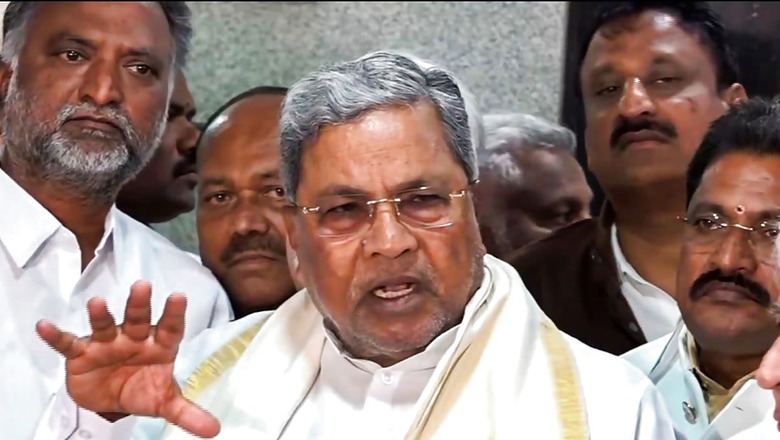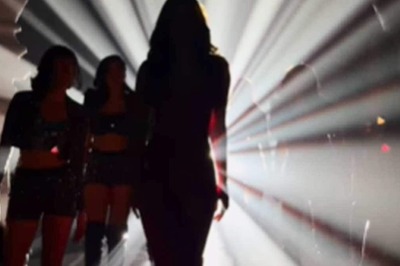Karnataka’s ‘High’ Hopes: State To Cut Down Liquor Prices By 12-20% To Boost Revenue Amid Guarantees

views
The Karnataka government has now turned to tipplers to increase its revenue, amid the serious economic crunch to dispense a whopping Rs 54,000 crore annually to fulfil the five guarantees they gave to come to power. The excise department will soon be dropping the price of premium Indian Made Liquor (IML) from July 1, which the Congress government hopes will bring money into the depleting coffers of the state.
The drop in prices is likely to be between 12 and 20 per cent, say officials.
Government sources say that the revision of pricing is being done to rationalise it with that of Karnataka’s neighbouring states. As of now, Karnataka has a much higher pricing of premium liquor compared to Maharashtra, Andhra Pradesh, Kerala and Tamil Nadu.
“The plan is to revise the prices of premium liquor in the premium categories to make it competitive with the prices in neighbouring states as well as bring the import of liquor from other states to a naught. Every step taken is always added revenue generation,” said excise minister R. B. Timmapur.
On a question of whether this move is being done to help fund the guarantees that are bleeding the government, he brushed it off saying, “High excise revenue collection has been there even before we announced the guarantees, why link the two?” he added.
A premium brand of Scotch whisky costs around Rs 7,000 in Karnataka, whereas it costs from Rs 2,300 in Gurugram to Rs 4,000 in Mumbai, Rs 4,500 in Hyderabad, Rs 4,700 in Chennai and Rs 3,000 in Goa. A pint (180 ml) of IML in the first (lowest) slab costs around Rs 63.14 in Karnataka, whereas it is priced between Rs 110 and Rs 120 in neighbouring states. A draft notification to amend the Karnataka Excise Rules 1968 has been published, reducing the number of excise tax slabs from 18 to 16. Of the 18 slabs, the second one alone contributes over 55% to the excise revenue.
#BreakingNews | #Karnataka State govt ropes in Boston Consulting group to oversee and boost state's revenue ; BJP calls decision outrageousThis is akin to handing over the reins to the East India Company : #BJP state president, Karnataka @Aksharadm6 @anjalipandey06 pic.twitter.com/lqBTfA9NMP
— News18 (@CNNnews18) June 21, 2024
AMBITIOUS TARGET
The excise department has been given an ambitious excise revenue target of Rs 38,525 crore for 2024-25 financial year, of which between the months of April, May, and June 2, the department has collected Rs 7,622 crore. Last year, around the same time, the revenue collection for the same period was Rs 7,340 crore.
The department recently reduced the slabs of liquor and its pricing from 18 to 16 and issued a notification saying the new downward revision would be on brandy, whiskey, gin, rum, liquors; however, beer, wine, and traditional liquor such as toddy or feni will not come under this new price structure.
Officials from the excise department News18 spoke to said that with the drop of an average of Rs 500 to Rs 2,000 per bottle of IML premium brands, consumption will see a quick uptick.
“This new pricing structure will also help our finances and the state is exploring ways to bring in revenue so that the people can continuously benefit from the guarantee schemes. The drop in prices will certainly encourage people to also consume products available in the premium slab as well,” said a senior minister in the Congress government.
Karnataka has seen an exponential rise in excise revenue from Rs 7.11 crore in the financial year spanning 1967-68 to Rs 34,628 crore during 2023-24. In the previous financial year, the department collected a revenue of Rs 34,628 crore. “We will not be able to give the exact cost change as of now as we are awaiting communication from distilleries who are to let the department know what prices they plan to declare on their labels,” said a senior excise department official to News18.
THE HIKES
In the one year it has been in power, the Karnataka government had earlier increased the price of Nandini milk by Rs 3, stating that the milk farmers had demanded the increase as they were not getting the right price for their produce. Karnataka also increased stamp duty on property registration from Rs 500 to Rs 3,000 per share and hiked the stamp duty rate for certified copies from Rs 5 to Rs 20 as well. It also amended the Karnataka Motor Vehicle Taxation (Amendment) Act, 2024 under which a 3 per cent extra fee is being charged on transport vehicles.
What is the need of the Boston Consulting Group when a self-proclaimed economist like @siddaramaiah is the Chief Minister of the state?Not sure whether it will boost the revenues of the State Government, but it will definitely boost the revenues of private consultancy firm at… pic.twitter.com/JykiBe1CCu
— R. Ashoka (ಮೋದಿ ಅವರ ಕುಟುಂಬ) (@RAshokaBJP) June 19, 2024
THE GUARANTEES
The Congress built its election campaign on five guarantee schemes — 200 units of free power to all households (Gruha Jyoti), free public bus rides for women (Shakti), Rs 2,000 per month for women heads of households (Gruha Lakshmi), 10 kg of free rice (Anna Bhagya), and Rs 1,500-3,000 for unemployed graduates (Yuva Nidhi). All of which brought them to power with the party winning 135 out of 224 seats in the 2023 assembly polls.
Under pressure to fulfil the five guarantees, the Siddaramaiah-led Karnataka government has roped in Boston Consulting Group (BCG) as a consultant. The BCG has been tasked to come up with strategies to boost revenue and plug leakages in revenue collections. The five guarantees, promised by the Congress during assembly elections, cost the exchequer Rs 36,000 crore in 2023-24. In his recent budget, Siddaramaiah proposed a 20% increase in the duty on Indian Made Foreign Liquor (IMFL) across all slabs, with the duty on beer rising from 175% to 185%.
As per the latest records, through the Anna Bhagya scheme, the government spent Rs 5,754.6 crore to provide an additional 5 kg of rice per family at ₹34 per kg. Siddaramaiah had said that the Gruha Jyothi scheme benefited 1.67 crore people, with an allocation of Rs 7,436 crore. By the Shakti scheme, it has facilitated over 2.01 billion bus rides, costing Rs 4,857.95 crore. The Gruha Lakshmi scheme has provided a total of Rs 20,293.49 crore to 1.2 crore women so far. Under the Yuva Nidhi scheme, over 1.53 lakh youngsters registered, and 29,587 beneficiaries received ₹1,500-3,000 through direct bank transfers (DBT).




















Comments
0 comment